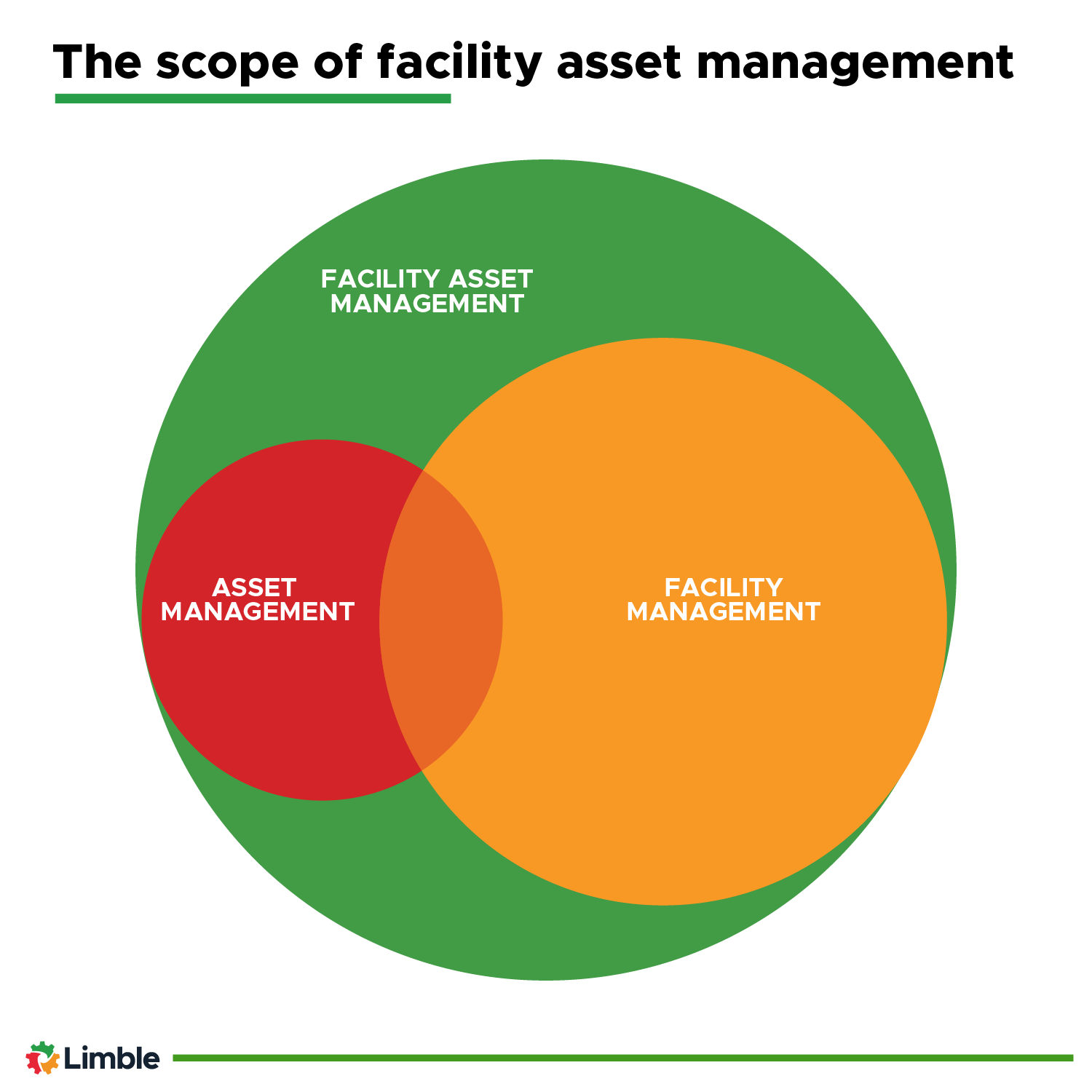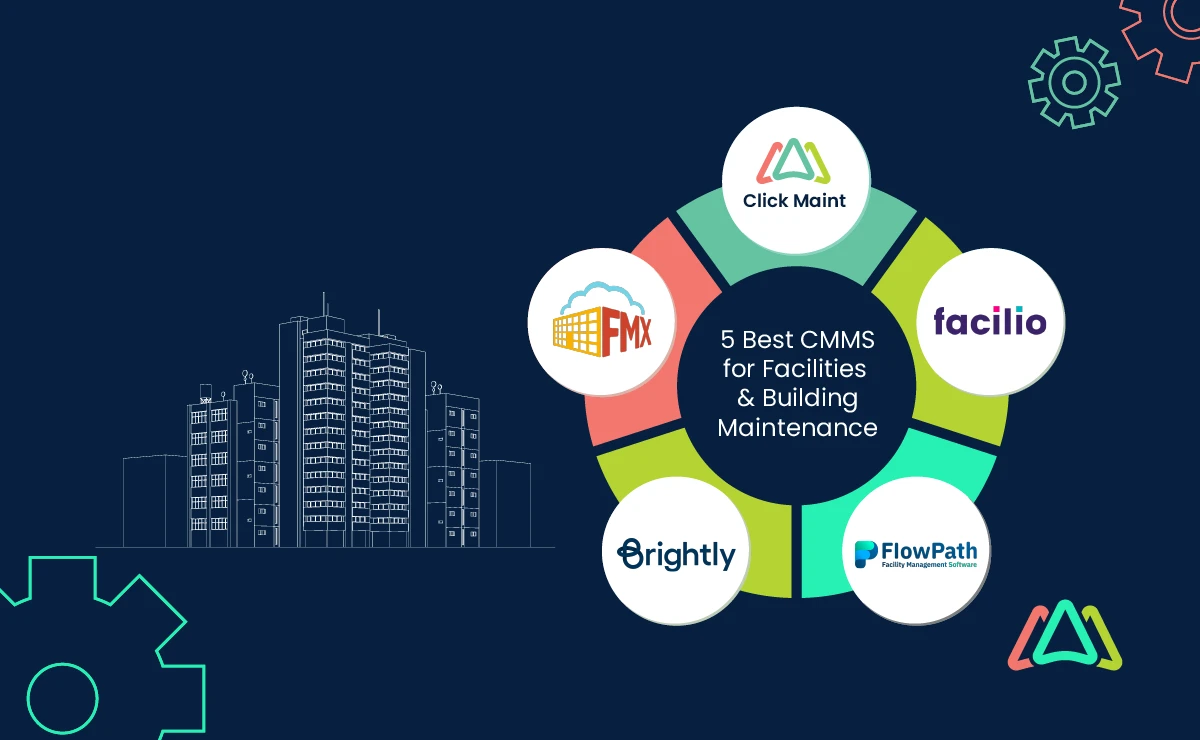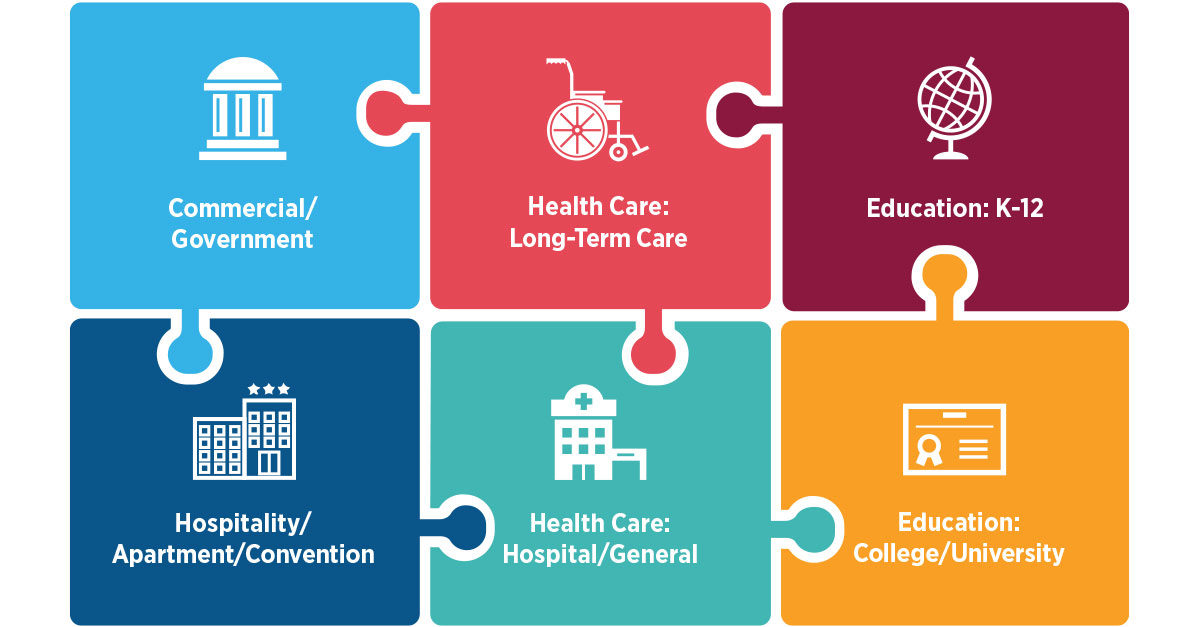Trick Patterns Forming the Future of Center Monitoring in 2024
As we look ahead to 2024, the landscape of facility management is poised for significant change, driven by numerous crucial fads. The assimilation of clever building innovations and a shift in the direction of data-driven decision-making pledge to improve functional efficiency while prioritizing sustainability in technique.
Smart Building Technologies

Smart building modern technologies incorporate a vast variety of systems, consisting of smart lights, heating and cooling controls, and safety systems. By integrating these systems, facility supervisors can monitor and adjust specifications in real-time, causing substantial reductions in power waste and functional prices. For instance, wise sensors can discover occupancy degrees and readjust lighting and temperature level accordingly, making sure that power is just utilized when required.
Furthermore, these technologies help with enhanced information collection, enabling organizations to track use patterns and determine opportunities for more improvements. The implementation of wise building innovations not only adds to sustainability objectives however likewise produces healthier workplace that can enhance employee efficiency and contentment.
As we move into 2024, the adoption of wise building modern technologies will likely increase, showing a more comprehensive shift in the direction of more intelligent, responsive, and sustainable center administration methods.
Data-Driven Choice Making
Significantly, organizations are leveraging data-driven decision making to boost facility administration practices. By harnessing information analytics, center managers can derive workable insights that considerably improve operational performance and resource appropriation. The combination of innovative innovations, such as IoT sensing units and real-time surveillance systems, enables the collection of substantial quantities of data on building performance, occupancy prices, and energy consumption.
This wide range of information enables center managers to determine trends, anticipate maintenance requirements, and proactively address problems prior to they rise. Predictive analytics can anticipate devices failings, reducing downtime and repair service expenses. Additionally, data visualization devices help with better interaction among stakeholders, guaranteeing that educated decisions are made collaboratively.
In addition, data-driven strategies boost strategic preparation by allowing facility supervisors to examine the performance of current techniques and make notified options relating to investments in technology or framework. As organizations progressively prioritize operational excellence, data-driven choice production is poised to end up being a cornerstone of successful center management approaches in 2024 and past. Eventually, the capability to leverage data successfully will equip organizations to develop more reliable, efficient, and durable facilities.
Sustainability and Eco-friendly Practices
The focus on data-driven choice making naturally aligns with the growing emphasis on sustainability and eco-friendly techniques within facility monitoring. As companies significantly focus on environmental duty, center supervisors are leveraging analytics to optimize source use, decrease waste, and decrease carbon impacts. This tactical approach enables the assimilation of energy-efficient systems, such as LED lights, clever a/c controls, and renewable resource sources into facility operations.
Furthermore, the implementation of sustainable practices prolongs past energy usage. Center supervisors are promoting and embracing green products reusing efforts to produce a circular economy within their centers. This not only boosts the ecological profile of the company but also fosters a culture of sustainability among workers.
Compliance with environmental policies is one more critical aspect driving the adoption of green techniques. By making use of data analytics, facility supervisors can keep track of Facility Management compliance metrics and recognize locations for improvement, ensuring adherence to global and neighborhood sustainability standards.
Hybrid Work Designs
A significant shift towards hybrid job designs is reshaping the landscape of center monitoring in 2024. This paradigm integrates in-office and remote work, necessitating a reevaluation of area utilization, source appropriation, and dig this employee engagement methods. Organizations are progressively identifying the value of adaptable offices that satisfy varied needs and choices.
Center supervisors should adapt by applying functional office designs that sustain joint initiatives while offering locations for focused work. This includes the integration of innovation to help with smooth interaction and cooperation amongst remote and in-office staff members. Smart structure services, equipped with analytics and sensors, enable for real-time surveillance of area usage, making it possible for companies to maximize their environments efficiently.
Additionally, crossbreed work models emphasize the need for reliable center administration that focuses on staff member experience. In essence, the hybrid work design is revolutionizing center management, urging a positive approach to satisfy the developing demands of the labor force.
Enhanced Resident Health
As companies accept hybrid work models, an increased focus on occupant wellness is ending up being indispensable to facility management approaches. Facility Management. This shift recognizes that a healthy and balanced and satisfied workforce directly influences efficiency and retention prices. Center supervisors are currently focusing on environments that promote psychological and physical health, incorporating elements such as all-natural lighting, biophilic layout, and easily accessible wellness sources

Technology plays a crucial function in this evolution. Smart building systems can monitor environmental elements and adjust settings in real-time, guaranteeing optimal convenience levels - Facility Management. In addition, comments mechanisms, such as occupancy sensors and employee surveys, permit center supervisors to continually fine-tune wellness efforts based on passenger requirements.

Verdict
In 2024, the future of facility find out this here administration will be substantially affected by the assimilation of smart structure innovations and data-driven decision-making, promoting improved operational efficiency. Sustainability initiatives will certainly focus on eco-friendly practices, while the emergence of crossbreed job versions will demand versatile office designs. A heightened focus on passenger health with innovative A/c systems and biophilic layout will add to healthier work atmospheres. These trends jointly emphasize the evolving landscape of facility monitoring in feedback to contemporary challenges and chances.
Facility managers are advertising and embracing eco-friendly products recycling campaigns to develop a circular economic climate within their centers.A considerable shift in the direction of hybrid job models is reshaping the landscape of facility management in 2024.In addition, crossbreed job designs highlight the need for effective facility management that prioritizes worker experience.As organizations embrace hybrid job models, an enhanced focus on resident health is ending up being important to facility management strategies.In 2024, the future of facility administration will be significantly affected by the assimilation of wise building technologies and data-driven decision-making, fostering improved functional performance.